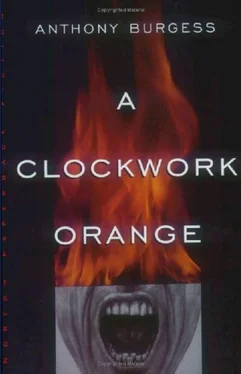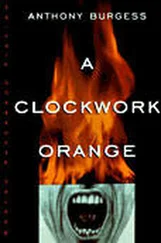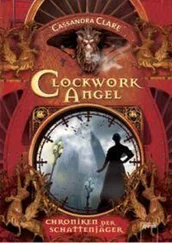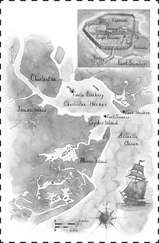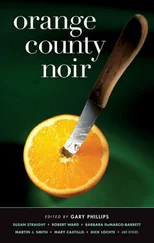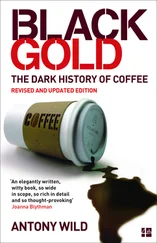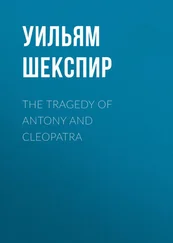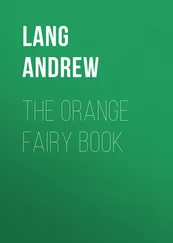A Clockwork Orange
by Anthony Burgess
Anthony Burgess was born in Manchester in 1917 and is a graduate of the University there. After six years in the Army he worked as an instructor for the Central Advisory Council for Forces Education, as a lecturer in Phonetics and as a grammar school master. From 1954 till 1960 he was an education officer in the Colonial Service, stationed in Malaya and Brunei.
He became a full-time writer in 1960, though his first novel had been published four years earlier. A late starter in the art of fiction, he had spent his creative energy previously on music, and he has composed many full-scale works for orchestra and other media.
Anthony Burgess maintains his old interest in music and in linguistics, and these have conditioned the style and content of the novels he writes. Though he and his wife no longer live abroad, foreign travel remains a great source of inspiration. He has, to date, published many novels, a book on linguistics, and various critical works.
His other books in Penguin are “Inside Mr Enderby,” “Tremor of Intent” and “Nothing Like the Sun,” a story of Shakespeare’s love-life.
“What’s it going to be then, eh?”
There was me, that is Alex, and my three droogs, that is Pete, Georgie, and Dim. Dim being really dim, and we sat in the Korova Milkbar making up our rassoodocks what to do with the evening, a flip dark chill winter bastard though dry. The Korova Milkbar was a milk-plus mesto, and you may, O my brothers, have forgotten what these mestos were like, things changing so skorry these days and everybody very quick to forget, newspapers not being read much neither. Well, what they sold there was milk plus something else. They had no licence for selling liquor, but there was no law yet against prodding some of the new veshches which they used to put into the old moloko, so you could peet it with vellocet or synthemesc or drencrom or one or two other veshches which would give you a nice quiet horrorshow fifteen minutes admiring Bog And All His Holy Angels and Saints in your left shoe with lights bursting all over your mozg. Or you could peet milk with knives in it, as we used to say, and this would sharpen you up and make you ready for a bit of dirty twenty-to-one, and that was what we were peeting this evening I’m starting off the story with.
Our pockets were full of deng, so there was no real need from the point of view of crasting any more pretty polly to tolchock some old veck in an alley and viddy him swim in his blood while we counted the takings and divided by four, nor to do the ultra-violent on some shivering starry grey-haired ptitsa in a shop and go smecking off with the till’s guts. But, as they say, money isn’t everything.
The four of us were dressed in the height of fashion, which in those days was a pair of black very tight tights with the old jelly mould, as we called it, fitting on the crotch underneath the tights, this being to protect and also a sort of a design you could viddy clear enough in a certain light, so that I had one in the shape of a spider, Pete had a rooker (a hand, that is), Georgie had a very fancy one of a flower, and poor old Dim had a very hound-and-horny one of a clown’s litso (face, that is). Dim not ever having much of an idea of things and being, beyond all shadow of a doubting thomas, the dimmest of we four. Then we wore waisty jackets without lapels but with these very big built-up shoulders (‘pletchoes’ we called them) which were a kind of a mockery of having real shoulders like that. Then, my brothers, we had these off-white cravats which looked like whipped-up kartoffel or spud with a sort of a design made on it with a fork. We wore our hair not too long and we had flip horrorshow boots for kicking.
“What’s it going to be then, eh?”
There were three devotchkas sitting at the counter all together, but there were four of us malchicks and it was usually like one for all and all for one. These sharps were dressed in the heighth of fashion too, with purple and green and orange wigs on their gullivers, each one not costing less than three or four weeks of those sharps’ wages, I should reckon, and make-up to match (rainbows round the glazzies, that is, and the rot painted very wide). Then they had long black very straight dresses, and on the groody part of them they had little badges of like silver with different malchicks’ names on them—Joe and Mike and suchlike. These were supposed to be the names of the different malchicks they’d spatted with before they were fourteen. They kept looking our way and I nearly felt like saying the three of us (out of the corner of my rot, that is) should go off for a bit of pol and leave poor old Dim behind, because it would be just a matter of kupetting Dim a demi-litre of white but this time with a dollop of synthemesc in it, but that wouldn’t really have been playing like the game. Dim was very very ugly and like his name, but he was a horrorshow filthy fighter and very handy with the boot.
“What’s it going to be then, eh?”
The chelloveck sitting next to me, there being this long big plushy seat that ran round three walls, was well away with his glazzies glazed and sort of burbling slovos like “Aristotle wishy washy works outing cyclamen get forficulate smartish.” He was in the land all right, well away, in orbit, and I knew what it was like, having tried it like everybody else had done, but at this time I’d got to thinking it was a cowardly sort of a veshch, O my brothers. You’d lay there after you’d drunk the old moloko and then you got the messel that everything all round you was sort of in the past. You could viddy it all right, all of it, very clear—tables, the stereo, the lights, the sharps and the malchicks—but it was like some veshch that used to be there but was not there not no more. And you were sort of hypnotized by your boot or shoe or a finger-nail as it might be, and at the same time you were sort of picked up by the old scruff and shook like you might be a cat. You got shook and shook till there was nothing left. You lost your name and your body and your self and you just didn’t care, and you waited until your boot or finger-nail got yellow, then yellower and yellower all the time. Then the lights started cracking like atomics and the boot or finger-nail or, as it might be, a bit of dirt on your trouser-bottom turned into a big big big mesto, bigger than the whole world, and you were just going to get introduced to old Bog or God when it was all over. You came back to here and now whimpering sort of, with your rot all squaring up for a boohoohoo. Now that’s very nice but very cowardly. You were not put on this earth just to get in touch with God. That sort of thing could sap all the strength and the goodness out of a chelloveck.
“What’s it going to be then, eh?”
The stereo was on and you got the idea that the singer’s goloss was moving from one part of the bar to another, flying up to the ceiling and then swooping down again and whizzing from wall to wall. It was Berti Laski rasping a real starry oldie called ‘You Blister My Paint.’ One of the three ptitsas at the counter, the one with the green wig, kept pushing her belly out and pulling it in in time to what they called the music. I could feel the knives in the old moloko starting to prick, and now I was ready for a bit of twenty-to-one. So I yelped: “Out out out out!” like a doggie, and then I cracked this veck who was sitting next to me and well away and burbling a horrorshow crack on the ooko or earhole, but he didn’t feel it and went on with his “Telephonic hardware and when the farfarculule gets rubadubdub.” He’d feel it all right when he came to, out of the land.
Читать дальше
